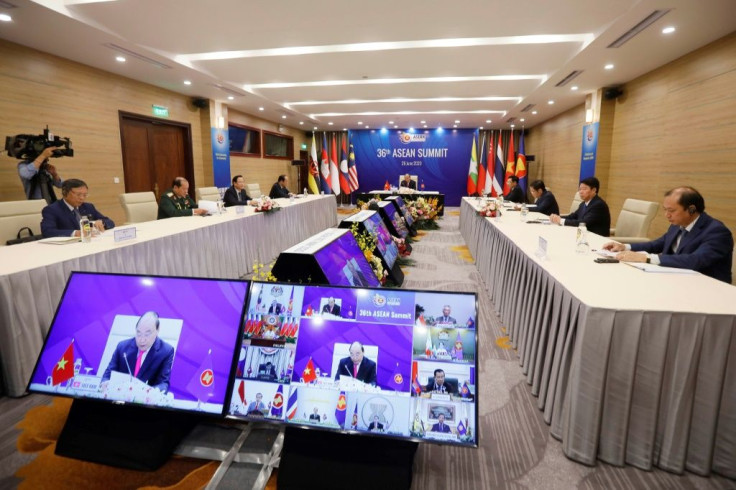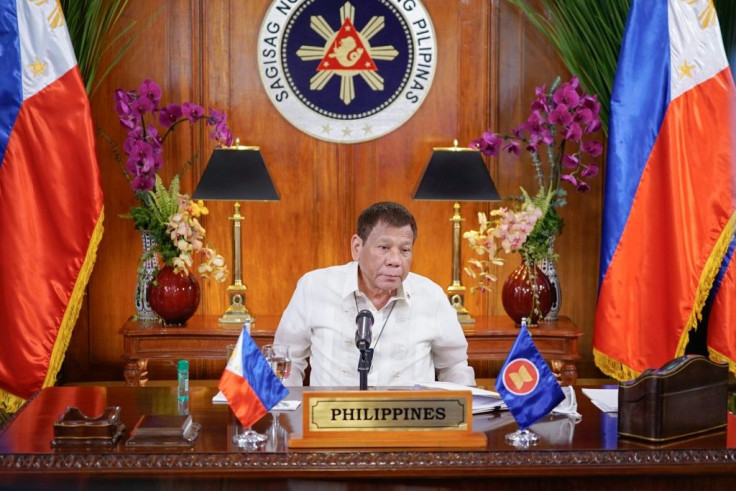Vietnam PM Warns Of Economic Calamity At ASEAN Summit
Vietnam warned Friday the virus pandemic had swept away years of economic gains as Southeast Asian leaders met online for a summit also dominated by anxiety over Beijing's moves in the flashpoint South China Sea.
The current chair of the Association of Southeast Asian Nations (ASEAN) also wants to use the summit to inject momentum into talks on a sprawling China-backed trade pact.
The immediate focus for the 10-member bloc is the crippling cost of the coronavirus, which has ravaged the economies of tourism and export-reliant countries such as Thailand and Vietnam.
"It has swept away the successes of recent years... threatening the lives of millions of people," Vietnam's Prime Minister Nguyen Xuan Phuc said in a sobering opening address.
He emphasised the "serious consequences" of the pandemic for economic development among ASEAN'S members.
ASEAN General Secretary Lim Jock Hoi confirmed the bleak outlook, warning the region's economy is expected to contract for the first time in 22 years.

Thailand is bracing for particularly rough news -- its central bank now forecasts its economy to shrink by an unprecedented 8.1 percent.
Vietnam, which has won praise for containing the virus early, is still set to see at least two percent chipped off its GDP in 2020.
It hopes the summit will see progress on a trade agreement known as the Regional Comprehensive Economic Partnership, which is being pushed by China.
A deal, which would loop in half the world's population and a third of its GDP, has been hampered by India's refusal to join over access to its market for cheap goods from China, the regional superpower it is now locked in a deadly border row with.

There is also increasing angst that the fallout from the virus has provided cover for new Chinese plays in the South China Sea, the resource-rich waterway Beijing claims most of but is also contested by Vietnam, the Philippines, Malaysia and Taiwan.
In a draft statement seen by AFP, ASEAN leaders noted concerns over "land reclamations, recent developments and serious incidents" in the South China Sea.
In recent years Beijing has stepped up its territorial claims in the South China Sea by building artificial islands.
In April it officially named 80 islands and other geographical features in the disputed waters.
The same month Vietnam also accused Beijing of sinking a trawler, prompting the United States to warn it was "exploiting the distraction" of other states "to expand its unlawful claims".
China is always advancing its pieces on the "South China Sea chessboard", a senior Southeast Asian diplomat told AFP.
Beijing took advantage of the Asian financial crisis in the late 90s and the SARS outbreak to push its claims, he added.
"If there is a space, they move."
Without directly mentioning China, Vietnam's Phuc admitted that "strategic problems between big countries had become clear and had deepened".
"While the world is trying its best to fight the pandemic, there were irresponsible acts, violating international laws, that affected the security and stability of some regions including ours," he said.
Vietnam expert Carl Thayer, an academic at the University of New South Wales, believes the past few months have been "business as usual" for China.
But he noted that negotiations on a so-called Code of Conduct for the South China Sea had stalled because of the virus.
© Copyright AFP 2024. All rights reserved.




















